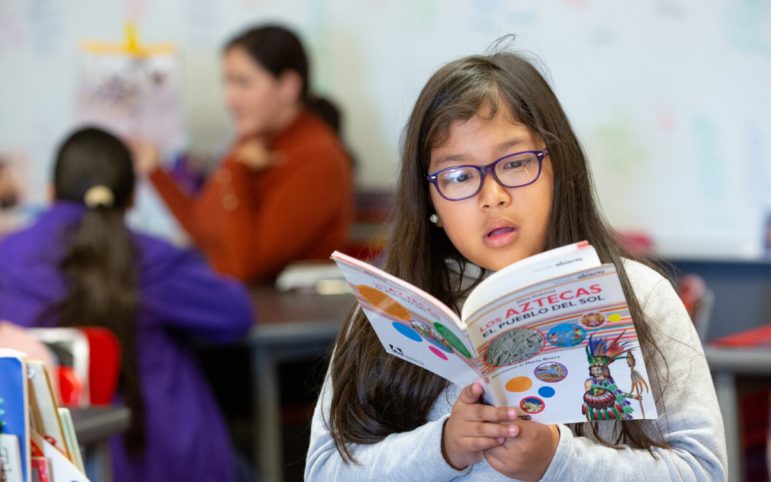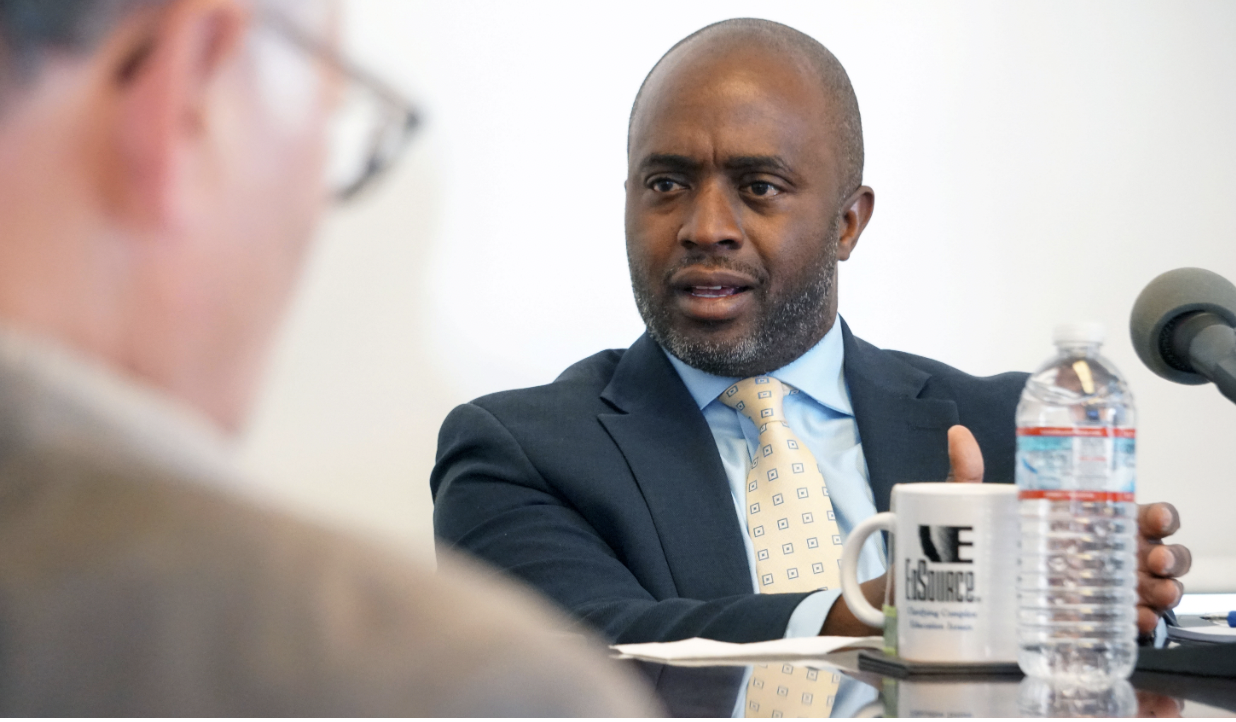While some states and cities like North Carolina, Arkansas, and New York City are embracing phonics-based curriculums and teaching practices for early literacy, State Superintendent Tony Thurmond said he does not support one particular strategy for California districts.
Still, Thurmond acknowledged in an interview with EdSource that explicit phonics instruction “has a clear place” in his initiative to get all third grade students reading by 2026. Thurmond announced the initiative in September and has named early literacy a top priority. He assembled a task force of educators and education experts to guide the process.
He acknowledged that California districts may need help assessing reading curriculums and the latest literacy research.
Thurmond said the California Department of Education has proposed bringing more literacy experts to the department who will help districts interpret all the new research and findings about literacy instruction. He identified that as a “high priority” request in the upcoming state budget.
“We’ve got to build a stronger team of folks who have expertise in literacy and can track all those changes and help districts interpret what those new changes and research means,” he said.
The literacy task force is still building its strategy for reaching that goal. Much of the planning hinges on what resources are made available in the 2022-23 state budget. Thurmond has asked schools to join the initiative but doesn’t foresee the state prescribing one curriculum to help them reach that goal.
Thurmond held a meeting in May to rally districts to commit to his 2026 goal. Near the end of the meeting, after attendees questioned whether the state would require a certain curriculum, Thurmond promised that wouldn’t be the case.
“We know that there are going to be different schools of thought on how you achieve reading by third grade. I promise you, we’re never going to say to you this is the only way that you can get there,” he said at the meeting. “We are not promoting a one-size-fits-all approach in California. That’s been tried before, our state is too large, it’s too diverse.”
New York City, on the other hand, is requiring all elementary schools to adopt one of the education department’s recommended phonics-based curricula for kindergarten through second grade. Several states, including North Carolina, Mississippi and Arkansas, have enacted policies in recent years that follow the “science of reading” approach to literacy instruction, which is based on developing research that learning to read is not a natural process and requires a heavy emphasis on phonics in order to teach students to connect letters and sound out words.

“Phonics will certainly play a key role (in the strategy to improve reading and bi-literacy in California). Districts may use different curricula, they may even use different assessments … ” Thurmond told EdSource. “I don’t see anything changing overnight with California being a local control state, but it’s my intent to make sure we provide any resource to districts that could be helpful and best practices that are proven to work.”
Proponents of the Science of Reading approach have called on California to follow suit, accusing state education leaders of not taking responsibility for years of lagging early reading scores.
Requiring districts to include phonics instruction or only allowing them to use certain curricula would require legislation, Thurmond said, and there are no bills currently aimed at doing that.
“We are delving into these issues and building out a better strategy for the state to address literacy, and that involves many people and many entities to come up with a way to help individual districts,” he said.
Thurmond supports Gov. Gavin Newsom’s $500 million proposal over five years to train and hire literacy coaches and reading specialists and a $200 million grant program for schools to create or expand their multilingual schools and purchase culturally relevant texts for reading instruction.
Both are included in the governor’s proposed state budget for 2022-23 which is being negotiated with the Legislature and will be finalized by mid-June.
Thurmond said the proposed funding for specialists and coaches is crucial, since he’s heard that districts’ current specialists and coaches have been “pushed into classroom teaching jobs” amid the nationwide teacher shortage.
Aside from the governor’s proposal, lawmakers are considering three bills for programs that the task force recommended. Assembly Bill 2465 would create grant programs to provide library cards to every public school student, fund programs that would include home visits to engage families in their students’ literacy instruction, and pay for the development and credentialing of 500 new bilingual educators to support biliteracy in schools. SB 952 would also support biliteracy in schools by providing grants to school districts, county offices of education and certain charter schools to create dual language immersion programs.
AB 2498 would establish a three-year pilot to expand Freedom Schools, which are Afrocentric summer literacy and learning-loss mitigation programs.
